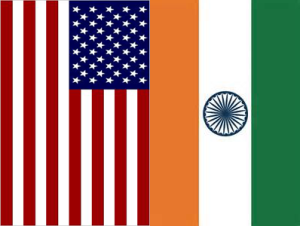 Twenty trade associations have written the House and Senate leadership urging Congressional engagement on the trade relationship between the U.S. and India. Their letter identifies intellectual property protection as an “ongoing challenge.” It highlights diplomatic structures where the countries have discussed IP and other issues, then notes that “WTO dispute settlement has played and should continue to play a key role in ensuring that India follows through on its international commitments.”
Twenty trade associations have written the House and Senate leadership urging Congressional engagement on the trade relationship between the U.S. and India. Their letter identifies intellectual property protection as an “ongoing challenge.” It highlights diplomatic structures where the countries have discussed IP and other issues, then notes that “WTO dispute settlement has played and should continue to play a key role in ensuring that India follows through on its international commitments.”
The signatures on the letter include RIAA, MPAA, PhRMA, BIO, and the U.S. Chamber of Commerce.
A recent International Trade Commission investigation into Indian barriers to trade surveyed businesses operating in the country, and found that intellectual property concerns were actually more muted than the rhetoric in DC would suggest. As I wrote in an earlier blog, the report found that
“Overall, three quarters of the firms (73.9%) that answered the survey indicated they were not substantially adversely affected by Indian policies. Among the firms that reported problems, “Measures in two policy areas — tariffs and customs procedures, and taxes and financial regulations — have the heaviest effect on U.S. companies … IP-related impediments rated lower than tariffs and taxes as barriers to doing business in India, even by U.S. companies that considered IP protection very important to their operations.” Data from the survey that support this:
- Share of U.S. companies engaged in India that are substantially affected by … intellectual property and local content requirements: 8.2% (Table ES 1)
- Share of U.S. companies with foreign affiliates in India that are substantially affected by … intellectual property and local content requirements: 11.4% (Table ES 2)
- Share of IP- intensive companies that are substantially affected by … intellectual property and local content requirements: 11.7% (Table ES 4)”
Nonetheless, particular companies and their trade associations have continued to lobby the U.S. government on the issue. Later this week, Special 301 Comments are due to the U.S. Trade Representative’s office, and the same firms will surely ask the U.S. government to continue to pressure India to strengthen intellectual property protection.
Click here for the full letter.
See also, Vicki Needham in The Hill, “US businesses press Congress, White House to improve trade with India.” (Link)




